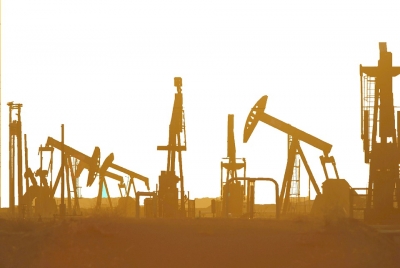India is closely monitoring the developments in Mozambique as a 1000 strong Rwandan force entered the country in a bid to help Maputo fight terror groups that have been gaining a stronghold in the country. The mineral rich country is not only home to a sizable Indian diaspora but several companies including ONGC Videsh have huge investments in Mozambique.
State owned ONGC Videsh Ltd and Oil India Ltd along with other foreign investors had secured $14.9 billion debt to part-finance their $24.1 billion liquefied natural gas (LNG) project being built on the Afungi peninsula.
The project with one of the largest investments in Africa, is led by the French behemoth Total Energies, is expected to produce 12.88 million tonnes per annum of LNG.
Following the Islamic State (IS)- orchestrated ghastly attacks in the resort town of Palma, Cabo Delgado province very close to the LNG project, Total recalled its entire staff force from the site. Work has been currently stalled at the site.
Also read: Mozambique terror attacks: Anxiety hangs over India's LNG project
“French behemoth Total Energies is the operator for Area1 Mozambique LNG Project. The Operator had to temporarily stop the work due to force majeure situation and the project activities shall start as soon as the security situation becomes manageable from safety and security point of view,” ONGC Videsh in an emailed response to India Narrative’s queries said.
The Mozambique Oil and Gas Chamber had said that the attacks are aimed at disrupting the project which “will fundamentally recast the fortunes of Mozambique from one of the poorest countries in the world to possibly a middle-income country.”
Leading energy expert Narendra Taneja told India Narrative that terror activities dampen investors’ confidence. “There are temporary financial losses as the work has to be halted”, Taneja said. However, he added that there is no threat to the assets or the reserves as such as they are underground, underwater. This particular field is prolific with proven high gas reserves, and is safe,”
India’s total investment in Mozambique amounts to $8 billion, accounting for 25 per cent of the total Indian capital invested on the African continent, Club of Mozambique pointed out.
According to the BBC, last month Rwanda sent 1,000 soldiers to Mozambique to fight the militants, who launched an insurgency in 2017 that has left more than 3,000 people dead and 820,000 displaced.
“The Mozambican armed force have been struggling to regain control of the province,” BBC said.
The Observer Research Foundation in a report said that Islamist armed insurgency has alarmingly increased in Mozambique.
“What began as a local religious sect has now morphed into a violent Islamic insurgency, led by the jihadist group Ahlu Sunnah Wa-Jama’a (ASJW), locally known as ‘Al Shabaab’, it said.
Given India's high stakes in the West Indian Ocean that washes the shores of East Africa including Mozambique, the Indian Navy's involvement in securing the region is on New Delhi's radar. In fact, India's warship, Talwar, has just concluded participation in in Cutlass Express 2021 of the East African coastline of the Indian Ocean. The warship exercised in massive multinational manoeuvres steered by the Africa Command of the United States. The participants included 12 East African countries, the UK, European Union Naval Force Somalia (EUNAVFOR), Critical Maritime Routes Indian Ocean (CRIMARIO), EUCAP Somalia, and Interpol, apart from the International Maritime Organisation (IMO) and the United Nations Office on Drugs and Crime (UNODC).
“Due to the strategic location of Mozambique and one of the longest coast line in its southern eastern part, Mozambique provides a good opportunity for India to enhance maritime cooperation since the Mozambican navy does not have the capacity to protect its coast,” noted Vivekananda International Foundation.
It added that Mozambique may very soon have the fourth largest reserves of gas in the world behind Russia, Iran and Qatar. Hence, India’s engagement and investments in Mozambique’s energy sector are also increasing.




















